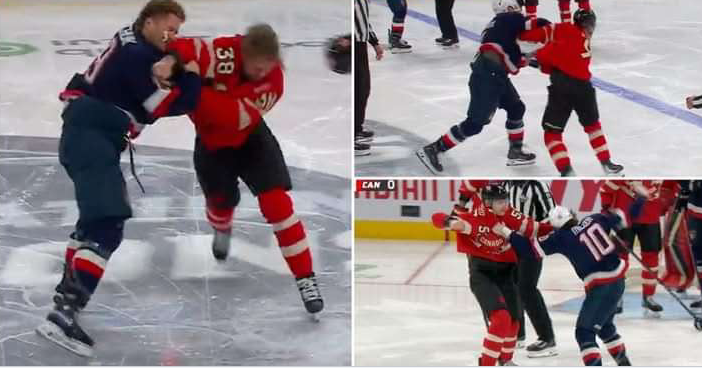Rafael Nadal, often referred to as the “King of Clay,” has become one of the most successful and adored athletes in tennis history. His dominance at the French Open is unrivaled, with 14 titles to his name as of 2023, but the relationship between Nadal and the Roland Garros crowd has never been straightforward. While Nadal’s achievements on the red clay courts of Paris have earned him legendary status, his connection with the French Open audience has been complex and, at times, controversial. In recent comments, Nadal’s uncle and long-time coach, Toni Nadal, shed light on this intricate dynamic, explaining why “people didn’t want to see Rafael Nadal win so much.”

To understand the tensions surrounding Nadal’s relationship with the French Open crowd, one must first acknowledge his unprecedented success on the clay courts of Roland Garros. Since winning his first French Open title in 2005, Nadal has been nearly unstoppable on the Parisian surface. His raw power, tenacious defense, and unmatched fitness have made him the most dominant player in the history of the tournament.
Nadal’s record at the French Open, where he has claimed 14 titles and reached the final 16 times, is a testament to his dedication and unparalleled skill on clay. His accomplishments at Roland Garros have etched his name into tennis history, and his dominance on the surface has often led many to view him as the rightful king of Paris. Yet, as Toni Nadal recently pointed out, this massive success has not been without its challenges.
Despite Nadal’s success in Paris, the French Open crowd has never fully embraced him in the way one might expect for a champion of his caliber. Unlike at Wimbledon, where he is widely celebrated for his all-around game, or the Australian Open, where he has garnered a huge following due to his affable personality, Nadal’s relationship with the French Open crowd has been a subject of much intrigue.
Toni Nadal’s comments about the crowd’s behavior highlight an important aspect of Nadal’s career: “People didn’t want to see Rafael Nadal win so much.” The remark reveals a dissonance between Nadal’s achievements and the reactions he often received from the crowd at Roland Garros.
So why did the French crowd seem to have such ambivalence, or even resentment, toward Nadal’s success on the clay courts? There are several contributing factors that explain this phenomenon.
One of the key factors contributing to the lukewarm reception Nadal received in Paris during his prime years was the rivalry between Nadal and French tennis players, particularly Gaël Monfils and Jo-Wilfried Tsonga. The French public, always deeply invested in its own players, often found itself torn between supporting their homegrown talents and acknowledging Nadal’s dominance on the clay courts.
In the early years of Nadal’s reign at Roland Garros, Monfils and Tsonga, both talented and charismatic players, were seen as the hope for French tennis to challenge Nadal’s supremacy. The French crowd, passionate and vocal in their support of their own, naturally rallied behind their players, often with a fervor that bordered on the hostile when Nadal was involved.
Monfils, known for his flamboyant style and entertaining play, quickly became a fan favorite in France. His rivalry with Nadal reached a fever pitch when they met in the 2008 French Open semifinals, with the French crowd loudly backing Monfils, despite Nadal’s clear superiority on the court. While Nadal won the match in straight sets, the atmosphere was electric with French fans hoping for an upset.
Similarly, the 2008 final between Nadal and Tsonga, who had become a symbol of French tennis pride, saw Nadal facing immense pressure from the home crowd. Despite Nadal’s eventual victory, the crowd’s emotional investment in Tsonga was undeniable, and it was clear that many in the stadium had hoped for a different outcome.
These rivalries created a charged environment at Roland Garros, where Nadal, despite being the most successful player of his generation, was often viewed as the outsider in his own way. His dominance was sometimes perceived as a barrier to the success of French tennis, and this contributed to a less-than-warm reception from the local fans.
Nationalism plays a significant role in the world of tennis, particularly at tournaments like the French Open, where the crowd’s allegiance is often shaped by their national pride. As an outsider, Nadal faced the challenge of earning the respect and admiration of a crowd that was highly protective of its own.
While Spain and France share a similar cultural background, the historical and political differences between the two countries created a subtle tension, especially on the tennis court. This rivalry, while not always overt, was felt on the court, and Nadal’s continued success in Paris often came with a tinge of frustration from French fans who longed for a homegrown hero to dethrone him.
The presence of top French players like Monfils, Tsonga, and later Lucas Pouille and Richard Gasquet, only intensified this atmosphere. With every French player who made it deep into the tournament, the hopes of the crowd were renewed, and their desire to see a local player triumph often came at the expense of Nadal’s own success.
Nadal’s own demeanor in the face of this tension may have also contributed to the ambivalence of the crowd. While Nadal is universally known for his sportsmanship and humility, the very intensity with which he competes — and his relentless focus on winning — may have alienated some fans who wanted to see the more human side of him. In contrast, players like Monfils and Tsonga, with their charismatic personalities and high-energy playing styles, were easier for the French public to identify with.
Over time, however, the French Open crowd’s attitude toward Nadal has evolved. As Nadal’s dominance continued, and as his rivalries with the likes of Novak Djokovic and Roger Federer came to the fore, many fans began to appreciate Nadal for his unparalleled work ethic, his passion for the game, and his ability to perform under the most intense pressure.
By the time Nadal had clinched his 13th French Open title in 2020, the French crowd had softened their stance, and even those who had once viewed him as a threat began to celebrate his achievements with respect. His displays of sportsmanship, combined with his enduring humility, ultimately won over many of the Roland Garros faithful.
Toni Nadal’s comment about the crowd’s initial reluctance to embrace his nephew may be a reflection of the broader dynamics at play during Nadal’s early years in Paris. However, it also reflects the growth of Nadal as both a player and a person. Over time, the audience in Paris has come to recognize Nadal’s greatness, and the historic nature of his achievements has made it increasingly difficult to ignore or dismiss his success.
Today, Rafael Nadal’s legacy at Roland Garros is cemented not only through his record-breaking 14 titles but also through the personal journey he has undergone in the eyes of the Parisian crowd. While his earlier years at the French Open may have been marked by ambivalence and rivalry, his status as one of tennis’ all-time greats has earned him the admiration of a crowd that, over time, has come to appreciate the sheer greatness of his achievements.
Toni Nadal’s recent reflections highlight that success in sports is not always about the applause or the cheers of the crowd; it is also about overcoming obstacles, whether on the court or in the hearts and minds of the spectators. The French Open crowd’s evolving relationship with Nadal serves as a reminder that greatness is often met with resistance before it is fully acknowledged and embraced.
As Nadal’s career continues to unfold, it is clear that his relationship with the French Open crowd has transcended the initial challenges he faced. Despite the complexities of this relationship, Nadal’s unparalleled success at Roland Garros has secured him a special place in the history of the tournament and in the hearts of tennis fans around the world.
In the end, the complex story of Rafael Nadal at Roland Garros is not just about titles and trophies; it’s about the way sports can unite, divide, and ultimately transcend boundaries, leaving a lasting legacy that resonates beyond the courts.






